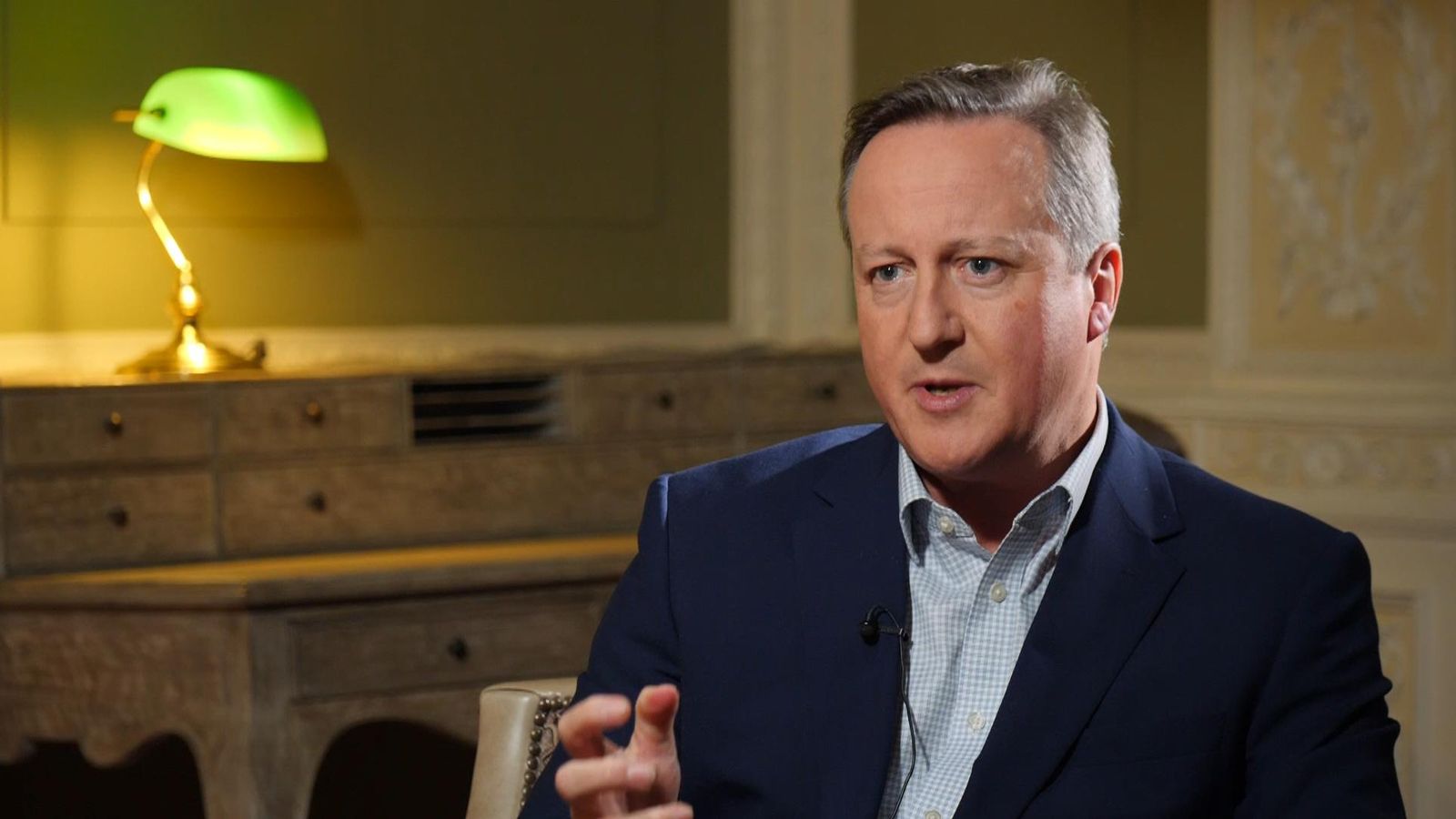The government should consider providing people with insurance in case they need to pay large fees for social care, David Cameron has said.
The former prime minister, who described dementia as a “world of darkness” and the “health crisis of our time”, is also urging Chancellor Jeremy Hunt to look again at capping the amount people have to pay for care.
He told Sky News that dementia appeared to be a “classic case for where you should have some form of insurance to try and deal with these catastrophic costs” which are “devastating for lots of families”.
But because private companies have not provided policies, Mr Cameron said the “conclusion I would come to is that government needs to form some sort of partnership with insurance or perhaps even provide the insurance itself”.
There is a precedent for that, he said, as many years ago, government protected businesses from the “catastrophic costs of terrorism”.
Mr Hunt, a former health secretary, is “very aware of these issues”, Mr Cameron said, and a “big supporter of research into Alzheimer’s and dementia“.
The former prime minister said the fight against major diseases was a marathon – and while doctors battling cancer are on mile 18 or 19, those researching dementia are only on mile nine or 10 – not even half way.
He also said lessons could be learned from the COVID vaccine taskforce – and that a dementia diagnosis should not be considered an inevitable part of ageing.
Mr Cameron, who left Downing Street in 2016, said he realised the scale of the problem when he was still an MP and saw a “son in his 50s talking to a mother in her 70s and she had no idea who he was – you could see the heartbreak on his face”.
Nursing homes were getting “bigger and bigger” and more and more people were “slipping into this sort of world of darkness”.
Please use Chrome browser for a more accessible video player
Mr Cameron is working with the EDoN initiative (early detection of neurodegenerative diseases) and said there is a series of “fingerprints” that can help with early diagnosis of dementia.
“It could be the way you sleep or the way you walk or the way you talk or the way you use your mobile phone,” he explained.
“So we’re using things like Fitbits and headbands and telephones and apps and collecting all these digital fingerprints.
“Our aim is to diagnose Alzheimer’s 10 to 15 years earlier than today.”
Only a tiny fraction of people on recent drug trials were from the UK. When the former PM was asked whether we could do better, he said the “answer to that is yes”.
‘Could be big breakthrough’
He added: “I think one of the great proof points of the vaccine taskforce – which was a triumph for the UK – was they were recruiting people off the internet.
“They were doing things that no one had done before in terms of medical trials, and instead of doing things in sequence, they were doing things in parallel.
“And the whole point of the EDoN project… some of those people will be in the UK… once you’ve got the fingerprints, you can that apply that to the medical checks we do in this country, when people are 40, when people are 50. So this could be a big breakthrough.”
For more on science and technology, explore the future with Sky News at Big Ideas Live 2022.
Find out more and book tickets here
Regarding treatments, Mr Cameron said some encouraging drugs had emerged recently which appear to be reducing the build-up of “proteins in the brain that many scientists think are connected to Alzheimer’s”.
There are more than 140 drugs in trials, he added.
He is “hopeful” that progress is being made, but said there “still needs to be government action” – in addition to philanthropy and what the pharmaceutical companies are doing.






















